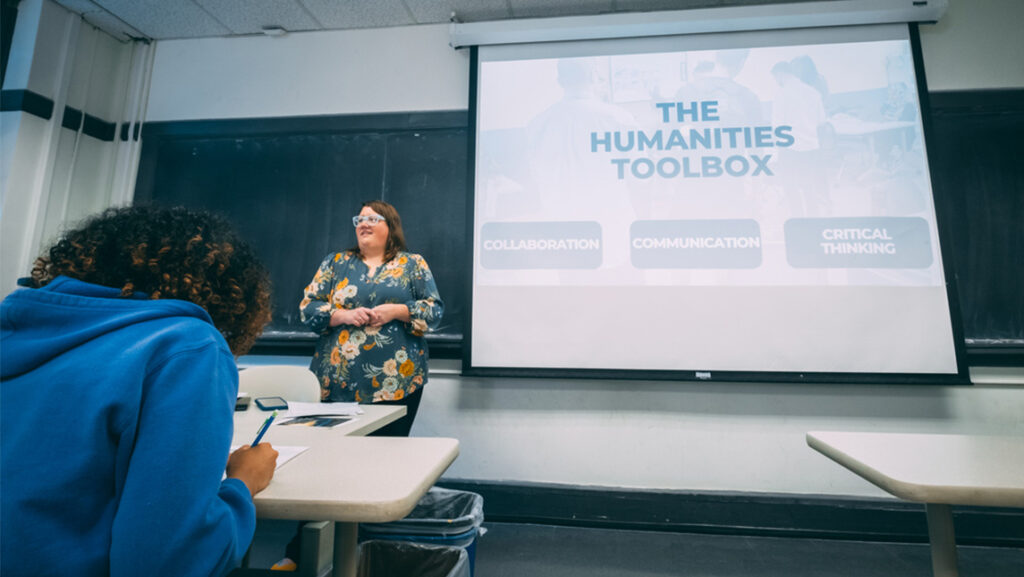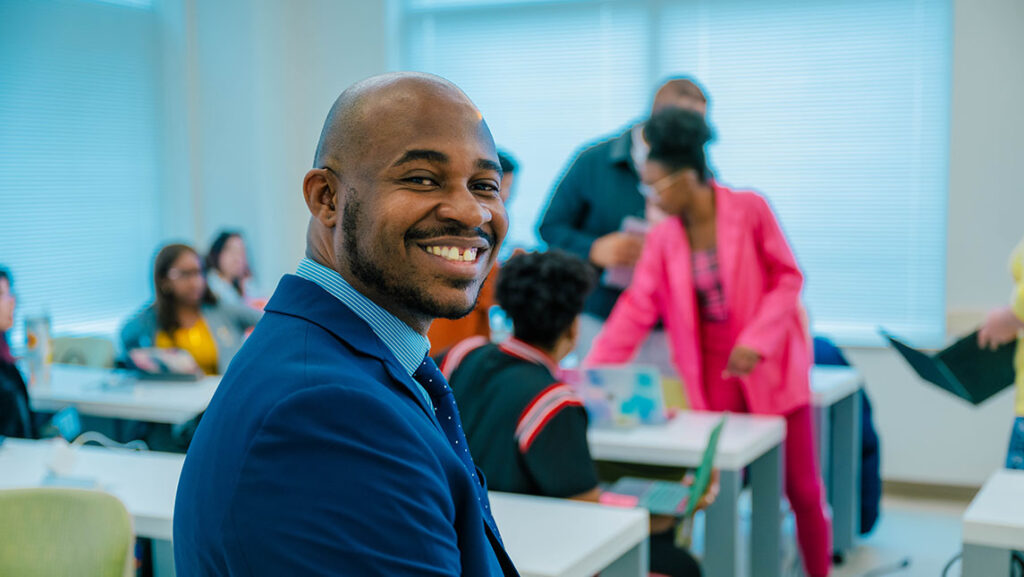Article by Mary McLean and Sangeetha Shivaji
UNCG professor Eric Ford and doctoral student Dmytro Babik have created a peer assessment system that revolutionizes the ways students learn and grow in large and online courses. The technique, which takes its inspiration from the Socratic Method, emphasizes constructive discussion and feedback.
Online peer assessment systems help students receive critiques on assignments from fellow classmates as well as professors. These systems lighten professor workloads, allow more integrated assignments, and provide students with more varied and comprehensive feedback …If they work the way they are supposed to.
In reality, many existing peer assessment systems are resource- and time-consuming, requiring constant monitoring and intervention by an instructor or assistant. If handled improperly or without extensive instructor guidance, these systems can fail to produce quality interaction or useful feedback.
Several years ago UNCG management professor Ford had an unusually large and writing-intensive online class and recognized the colossal amount of time he was going to spend grading and critiquing assignments. When he brought up the issue with his colleague Dmytro Babik, an information systems doctoral student, Dmytro said “Well we’ve been talking about it for years, why don’t we do the peer to peer experiment?”
UNCG information systems doctoral student Dmytro Babik is the other developer of Mobius SLIPFord and Babik envisioned a simple, efficient system that was functional both online and in the classroom, irrespective of class size. It would allow for complex creative assignments and learning through social interaction among students. It would incorporate the right set of motivators to encourage students to do their best without instructor moderation and include learning analytics to demonstrate student progress.
In May 2011, using Excel spreadsheets and Google Docs, the two colleagues began working on the prototype for what is today the Mobius SLIP (Social Learning Information Platform), a fully functional web-based learning management system for complex assignments and peer reviews. Their approach places students into anonymous online groups in which all members review each other’s submissions, giving and receiving critiques. The students rate and rank the submissions relative to one another, and then they also rate and rank their peers’ critiques based on thoughtfulness, helpfulness, and professionalism. This unique double-loop method, which evaluates both submissions and submission feedback, lies at the heart of Ford and Babik’s peer assessment innovation.
Click here to learn more about Mobius SLIP“We are really interested in creating what is called a Social Learning Process, where students who didn’t do so well on the assignment get to see many good examples, and those who did do well can help others improve,” Babik explained.
The reaction from students and instructors using the program has been largely positive, with one UNCG graduate student saying, “the nature of online classes makes teamwork difficult, but I feel that Mobius SLIP is a creative solution, allowing more focused collaboration without the communication and scheduling conflicts that plague online courses.”
In April 2012, professors Ford and Babik took their fully developed product design to the UNCG Office of Innovation Commercialization. They filed a patent for their Double-Loop Mutual Assessment System, and, with two other partners, they founded their company, CTASIT LLC.
Through CTASIT, which stands for Complex Task Assessment Solutions and Information Technology, Ford and Babik have begun commercializing and distributing the Mobius SLIP system. They are already reporting revenues and are attracting prestigious institutions such as Clemson University, the University of Georgia, the Rochester Institute of Technology, and the University of Calgary.
Ultimately, Ford and Babik hope that Mobius SLIP will be part of a larger educational movement that promotes 21st century skills like creativity, critical thinking, communication, and collaboration to improve the student experience. “We want to move away from standardized testing because it doesn’t encourage critical thinking or creativity,” said Babik. Ford continues, “We want to make sure that people get a community… helping them build the most relevant skills when they need them.”
Photography by Mary McLean
 Article author Mary McLean is a Media and Communication Intern with the UNCG Office of Research and Economic Development. She researches and writes articles about the on and off campus impacts of UNCG research. Mary is a sophomore at UNCG, majoring in English and minoring in Media Studies. Her interest in journalism and communication led her to her current position.
Article author Mary McLean is a Media and Communication Intern with the UNCG Office of Research and Economic Development. She researches and writes articles about the on and off campus impacts of UNCG research. Mary is a sophomore at UNCG, majoring in English and minoring in Media Studies. Her interest in journalism and communication led her to her current position.


